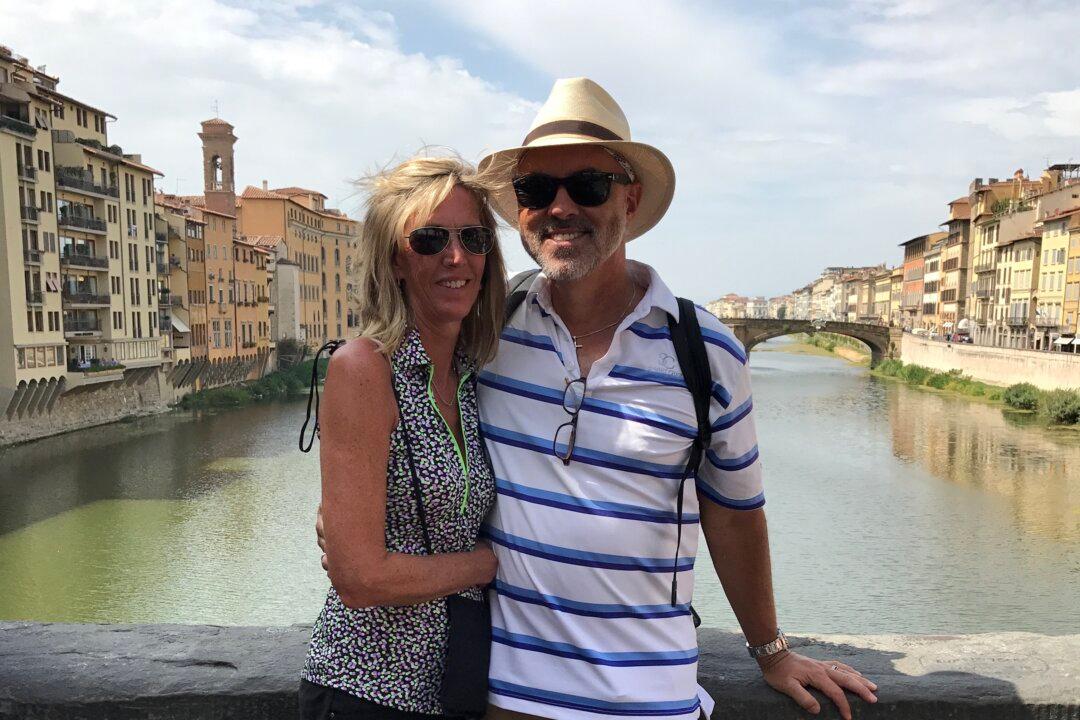Peter Larson, an entrepreneur of two wood businesses, had been on a long spiritual journey before coming across “How Humankind Came To Be,” an article published last month in The Epoch Times by Mr. Li Hongzhi, the founder of Falun Gong.
Falun Gong, also known as Falun Dafa, is an ancient Chinese spiritual practice consisting of simple, slow-moving meditation exercises and teachings based on the principles of truthfulness, compassion, and tolerance.
He wrote in a comment to The Epoch Times: “I want to thank you emphatically for sharing this article. It is very enlightening and validates several beliefs that I have held for years but were never taught.”
So did retired firefighter Scott Monson, who called the article “a breath of fresh air in this world of shadow and deceit.” “It was simple and concise—considering the subject matter—whereas a lot of people tend to ramble on and make personal bias part of the message,” he told The Epoch Times.
The bias Monson mentioned was what Larson came to realize and tried to avoid in spiritual teachings. Currently living in central Georgia and 63, Larson said he had a blessed life even though he lost his father at nine and grew up without much spiritual guidance because his mother had to work to support the family. It was not until college that he began to read various religious books.
In his 20s, he got married in a Catholic church because of his wife’s religion. He initially converted to Catholicism but changed his mind after Pope John Paul II died in 2005. “I still believe in God and Jesus as my personal savior,” he said.
As he continued to read the Bible and other books of Eastern beliefs, he believed the Creator sent his prophets to help people of all ethnicities at various times. In turn, people took the truth imparted to them and converted it to their own versions.
“I believe the Bible was inspired by God. But at the same time, I can believe that some of the other holy books of other religions were probably inspired by God, too,” Larson told The Epoch Times, adding that “all the major religions had some aspects of truth but had been polluted by man, just making up stuff to suit his own needs.”
Now, the family doesn’t go to church anymore. In a way, he has become a spiritual leader of his family.
Karma Through Lives
For Larson, a major takeaway from the article was karma’s connection to current and past lives. He said he had known of the concept of karma but hadn’t made the connection before reading Mr. Li’s article.“If your life really is terrible right now, it’s probably because, in a past life, you were a really evil person,” he shared his understanding.
He continued, “And I started to think about a couple of people in my family, that no matter what we do to help them, they’re always in trouble. There’s always a black cloud. There’s always something wrong, and we can’t figure out why no matter what, they just can’t get over it.”
The article pointed him to new insights. “I could believe in past lives now. I could believe that that probably, while you’re trying to get rid of this bad karma, shake it off and, and learn to be better—your soul to learn to be better—that you have to go through trials, and this [life] is maybe just another one,” he said.
“But I believe that there’s a lot more to life than what’s here. And what we, what we see,” he added. “The soul goes on, and it’s got to progress and learn; learn how to be divine.”
Larson expressed interest in reading other works of Mr. Li and said he is still in search of the ultimate truth: “I’m trying to be the best I can and to get to my next mission, whatever God gives me, and whatever path is laid out for me. I want to be open to recognizing it, and then I pray to have enough strength to pursue it.”
Monson shares the same pursuit: a spiritual practice rather than dogmatic principles.
He was born and raised in Utah and lives in Arizona. Growing up in a Mormon family, he said he was always “a black sheep” in defiance of what he perceived as dogmatic principles.
He said one thing in Jesus’s teachings that resonated with him was “loving one another.” “That’s why it’s a part of my signature. On this, all the laws hang,” he said.
He added Mr. Li’s article resonated with him: “I appreciated that about Jesus—he resonated with me in that term—and Li Hongzhi.”



